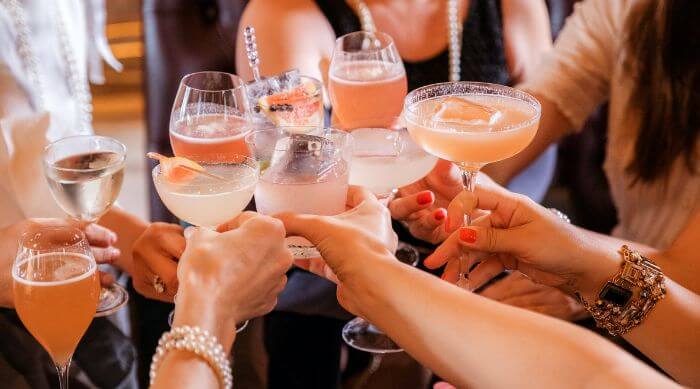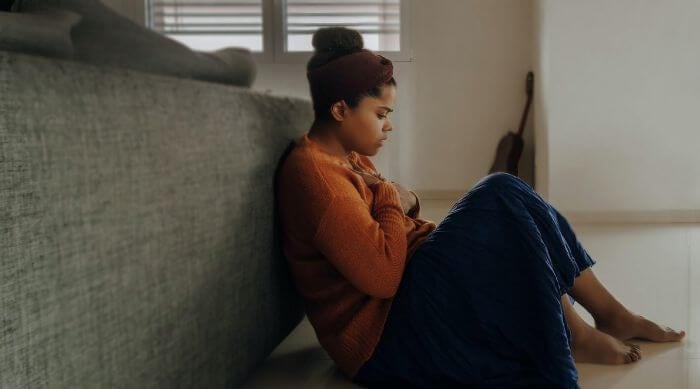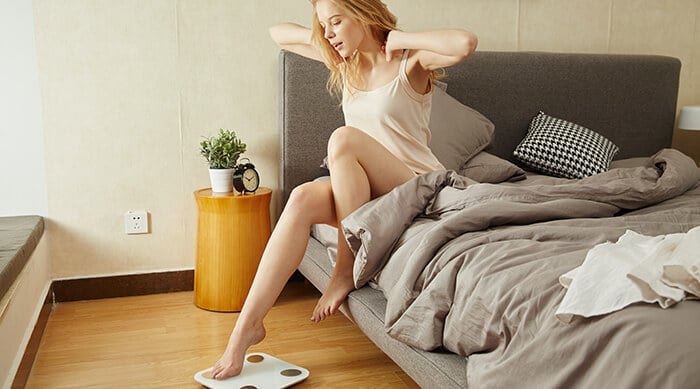If you feel a little fizzy after having too much champagne or one too many vodka tonics, it’s likely more to do with how much alcohol you had than the bubbles themselves.
That said, there may be some truth to the idea that mixing alcohol with carbonated beverages has an effect on your body. It’s just probably a little overblown.
Does carbonation affect alcohol? Carbonation affects alcohol by temporarily moving the alcohol into your bloodstream faster than normal. That rate of alcohol absorption means you might feel the effects of bubbly alcoholic beverages faster compared to flat drinks.
That isn’t true for everyone, though. Let’s unpack carbonation’s effect on alcohol absorption and whether you should ditch the soda mixers.
Table of Contents
Alcohol + Carbonated Mixers = Getting Drunk Faster?
Other Factors in Fast Absorption
Alcohol Absorption
Some studies show that carbonation in drinks like champagne speeds up the rate of alcohol absorption anywhere from 40-50%. The thing is, most of the studies that have looked into this idea are limited.
For those who do feel a little tipsier than usual after a vodka soda vs. a glass of merlot, it may have something to do with your body’s biology.
Alcohol + Carbonated Mixers = Getting Drunk Faster?
Carbonation is basically carbon dioxide gas added to a beverage to give it a little something extra. The concept has been around since the 17th century when Europeans decided adding bubbles into their diet had therapeutic value.
It wasn’t until much later that scientists found that carbonation may speed up the movement of liquids from your stomach to the small intestine. When alcohol is involved, that may mean the ethanol is hitting the small intestine faster than usual.
Is it safe to drink alcohol mixed with carbonated beverages? It is safe to drink alcohol mixed with carbonated beverages as long as you’re doing so in moderation.
While you may feel drunk faster after indulging in alcohol with carbonated mixers, it doesn't mean you’ll stay that way.
Drunk Faster ≠ More Drunk
After time, it all seems to even out, and the drunkest person in the room will usually be the one who had the largest amount of alcohol in their system, bubbly or not.
While blood alcohol levels may be affected in the short-term, carbonated beverages don’t make you more drunk at the end of the night. That’s if you cut yourself off at some point, of course.
Bottom Line
Carbonation might have a hand in taking you to tipsy town a little faster than alcoholic drinks without it, but those effects are temporary. If you really want to avoid a hangover, you won’t do that just by skipping the bubbles.
You won’t avoid a hangover by worrying about whether you had wine before liquor, either. Drinking in moderation does a better job of that.
Which is worse for you: carbonated beverage or alcohol? Alcohol is worse for you than a carbonated beverage, especially if that fizzy beverage is a low-sugar soda water.
Drinking too much puts you at risk of short-term effects like impaired judgement, slowed reaction times, and even alcohol poisoning.
Heavy drinking over time can alter your blood pressure, worsen chronic conditions, and contribute to cardiovascular problems. None of that is more or less likely when alcohol is mixed with carbonated drinks.
Other Factors in Fast Absorption
There are quite a few factors that affect alcohol absorption in your body more than carbonation. Existing medications and health conditions, smoking cigarettes with your cocktails, even your body composition can all affect how quickly you feel the effects of alcohol consumption.
Let’s look at a few more in detail:
- Drinking on an empty stomach: When you drink, the alcohol is absorbed by the small intestine and moves into the bloodstream. Food slows that process down.
- High alcohol content: If you’re drinking a high-alcohol cocktail, less is more if you’re worried about your Blood Alcohol Content (BAC).
- Drinking speed: This one is pretty simple. If you drink faster, you’ll get drunk faster. Sip, don’t chug, if you want to keep your wits about you through the end of the night.
- Gender: Unfortunately, women get drunk faster than men. Men have higher levels of the enzyme gastric alcohol dehydrogenase that helps them metabolize alcohol faster. Differences in body water content and hormones play a part, too.
Read Next: Why Wine Causes Bloating & How to Prevent It
Our Alternative Mixed Drink Guide
What is the difference between alcohol mixed with carbonated beverages and alcohol mixed with other drinks? The difference between alcohol mixed with carbonated beverages and alcohol mixed with other drinks is a possuble faster rate of absorption with carbonated beverages.
That’s not the only reason some people avoid carbonation. Some people avoid even non-alcoholic carbonated drinks abecause they believe they exacerbate problems with gastroesophageal reflux disease (GERD) and similar conditions.
Studies are mixed on that point, too, but there’s plenty of information on the dangers of too many sugary soft drinks like Coca-Cola. We think if a drink doesn’t make you feel good, it makes sense to look for alternatives.
The good news is, cocktails without the fizz are easy enough to find.
Cocktails Without Bubbles
Some of the most classic cocktails already come sans bubbles. Here are a few popular options:
- Bourbon Old Fashioned: Classic versions of one of the oldest cocktails in the world call for bourbon, but substitute whiskey if that's your preferred spirit.
- Manhattan: This whiskey-based drink with New York roots was the most popular cocktail in the country for a while. Sweet vermouth and bitters round out this herbal cocktail.
- Martini: Sometimes people order it with vodka. Sometimes they order it with gin. Whatever your poison, you won’t see any bubbles in this classic cocktail.
- SIdecar: If you love citrus, this one is big on sour flavors. Sidecars are a blend of cognac, the orange liqueur Cointreau, and lemon juice.
- Whiskey Sour: A good bourbon elevates a cocktail popular with college students. Traditional prep calls for an egg white, but you can skip it if eggs aren’t part of your diet.
Flat Mixers for Your Home Bar
You can be more creative than diet soda and carbonated water. Here are a few non-bubbly mixers to add to your home bar:
- Liqueurs: Choose liqueurs based on your favorite cocktails. If you love coffee, pick up Kahlúa. If you enjoy fruit-forward combos, orange liqueurs mix well with a variety of spirits.
- Fruit Juices: Orange and pineapple juices are natural sweeteners and a great base for cocktails. If you like things sour, lemon, lime, and grapefruit juices add some zip and the added bonus of a dose of vitamin C.
- Bitters: You can really up your game if you pull out some bitters. A dash can add botanical, herbal, and yes, bitter elements to your favorite cocktails.
- Grenadine: This bar syrup is clutch for a good Tequila Sunrise or Singapore Sling, but it can also add a pop of color to any cocktail of your choice.
- Simple Syrup: Skip the sweet sodas in favor of this simple blend of sugar and water. Experiment with alternative sweeteners if you’re watching your sugar intake.
Non-Alcoholic Spirits
If it’s not the bubbles but drinking alcohol that’s bringing you down, modern alcohol substitutes go beyond your grandpa’s non-alcoholic beer. Here are a few of our favorite non-alcoholic spirits:
- Monday Gin
- ArKay Alcohol-Free Vodka
- Ritual Zero Proof Tequila Alternative
- My Celtic Soul
- Fluère Spiced Cane
- Lyre’s Apéritif Dry
Oh, there’s more. Check out our complete guide to non-alcoholic spirits and other elixirs that all come hangover-free.
Our Favorite Mocktails
You have options when it comes to creative mocktails that aren’t a Shirley Temple…unless you want one of those, of course. Here are a few of our faves:
If You Prefer Wine Anyway…
Sometimes the night calls for wine. What if we told you the following morning doesn’t have to call for a hangover?
Surely non-alcoholic wine comes with all the best things about wine without any of the negative effects of alcohol. If you don’t want bubbles, try our crisp non-alcoholic sauvignon blanc. Love the fizz? Taste our non-alcoholic sparkling rosé.
Sources
- The effects of carbon dioxide in champagne on psychometric performance and blood-alcohol concentration
- Alcohol in the body
- Gastric alcohol dehydrogenase activity in man: influence of gender, age, alcohol consumption and smoking in a caucasian population
- Carbonated beverages and gastrointestinal system: between myth and reality
- Consumption of Carbonated Soft Drinks Among Young Adolescents Aged 12 to 15 Years in 53 Low- and Middle-Income Countries





![Cure Your Wine Hangover [Plus Prevention Guide]](https://dropinblog.net/34240221/files/featured/wine-hangover.jpg)
